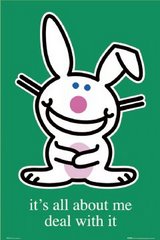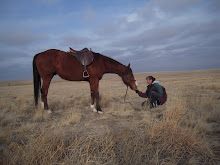So we want to implement this study in the fall to see if our peer tutoring program actually impacts students' academic self-efficacy and locus of control when it comes to schoolwork.
I've been working on the lit. review & annotated bib. since the beginning of summer, and part of what I was looking for in doing that was a general college academic self-efficacy scale that we could use in the study (saving us the trouble of developing and validating one of our own).
Sure enough, there are several existing instruments. There's the College Self-Efficacy Inventory (CSEI, Solberg et al., 1993), the Academic Self-Confidence subscale from the larger Student Readiness Inventory (SRI, published & managed through ACT Inc.), and the Perceived Academic Self-Efficacy Scale (PASES), just to name a few.
BUT HOW IN THE HELL DO I GET MY HANDS ON ONE?
I am realizing now that never have I discussed in class or with professors how one gets ahold of these tests - especially the non-published ones. We talk about creating our own. We talk about how it's more convenient to use an existing test so you don't have to run all the reliability, validity, etc. But we haven't spent much time on finidng and getting your paws on these existing tests. So what do I do now? I mean, sure we could use the SRI, but it's $100.00 per set of 25 individual answer sheets/questionnaires - and that's just silly when we're only interested in one of the three subscales. I'd really like to use the CSEI (or some modification of it) with all the validation data on it, but I have NO idea how to get ahold of it.
Anybody have any suggestions out there?
Monday, July 27, 2009
Monday, July 20, 2009
Quality Entertainment
Okay, so just the word "Statistics" seems to send shivers down the spines of many, while making others feel naseous, anxious, or even violent.
I definitely fall in to the "anxious" category. As such, I appreciate any opportunity to make statistics more lighthearted and/or accessible.
One of my new favorite sources for that is Dr. Andy Field. His website, Statistics Hell, is just the beginning. This man has a talent for making statistics at the very least less intimidating. For example, in the book How to design and report experiments (Sage 2003, co-authored by Graham Hole), there's a chapter about population samples and the purpose of a sample mean. Rather than presenting just the equations and run-of-the-mill examples, the example these authors choose goes something like this: "Imagine we were interested in how many units of alcohol it would take a man before they would snog a Labrador called Ben. Just suppose that in reality, if we tested every man on the planet we'd find that it takes them 10 units on average (about 5 pints of lager) before they would snog dear old Ben."
the authors then proceed to give a clear, valid, detailed explanation of how to calculate the sample means of different populations and plot the respective frequency distributions to yield the sampling distribution, etc., etc., variability, etc., etc.
Later in the book, in the section to help determine which statistical test is most appropriate for your data (which includes a WONDERFUL flow chart), the authors ask, "Are people who watch 'Star Trek' more optimistic about the future of humanity than people who don't?" and use this question to construct a hypothetical study, complete with types of data collected, study design, analysis techniques, etc.
Just for further example, another of Field's popular books is titled Discovering Statistics Using SPSS (and sex, drugs, and rock 'n' roll). It's a more technical, more complex read, but I am still finding it manageable (& far less frustrating) - and, again, part of this is helped by lightening up the technical jargon with some humorous examples. For example, in introducing logistic regression, the example is looking at variables predicting whether a person is male or female. The variables in question? Laziness, pig-headedness, alcohol consumption, and number of burps per day. "So, if we picked a random person and discovered they scored highly on laziness, pig-headedness, alcohol consumption and the number of burps, then the regression model might tell us that, based on this information, this person is likely to be male." There are plenty of "real" and/or "serious" research questions as well, which helps even more - introduce with the lighter, relatable stuff, and then get down to business. And I LOVE the decision trees (also in the sex, drugs, & rock 'n' roll book) because I am constantly second-guessing which test to use.
Mmhmm.
Anyway - I'm just happy to find some resources that make statistics easier to digest so thought I'd share. Hope someone out there can enjoy!
I definitely fall in to the "anxious" category. As such, I appreciate any opportunity to make statistics more lighthearted and/or accessible.
One of my new favorite sources for that is Dr. Andy Field. His website, Statistics Hell, is just the beginning. This man has a talent for making statistics at the very least less intimidating. For example, in the book How to design and report experiments (Sage 2003, co-authored by Graham Hole), there's a chapter about population samples and the purpose of a sample mean. Rather than presenting just the equations and run-of-the-mill examples, the example these authors choose goes something like this: "Imagine we were interested in how many units of alcohol it would take a man before they would snog a Labrador called Ben. Just suppose that in reality, if we tested every man on the planet we'd find that it takes them 10 units on average (about 5 pints of lager) before they would snog dear old Ben."
the authors then proceed to give a clear, valid, detailed explanation of how to calculate the sample means of different populations and plot the respective frequency distributions to yield the sampling distribution, etc., etc., variability, etc., etc.
Later in the book, in the section to help determine which statistical test is most appropriate for your data (which includes a WONDERFUL flow chart), the authors ask, "Are people who watch 'Star Trek' more optimistic about the future of humanity than people who don't?" and use this question to construct a hypothetical study, complete with types of data collected, study design, analysis techniques, etc.
Just for further example, another of Field's popular books is titled Discovering Statistics Using SPSS (and sex, drugs, and rock 'n' roll). It's a more technical, more complex read, but I am still finding it manageable (& far less frustrating) - and, again, part of this is helped by lightening up the technical jargon with some humorous examples. For example, in introducing logistic regression, the example is looking at variables predicting whether a person is male or female. The variables in question? Laziness, pig-headedness, alcohol consumption, and number of burps per day. "So, if we picked a random person and discovered they scored highly on laziness, pig-headedness, alcohol consumption and the number of burps, then the regression model might tell us that, based on this information, this person is likely to be male." There are plenty of "real" and/or "serious" research questions as well, which helps even more - introduce with the lighter, relatable stuff, and then get down to business. And I LOVE the decision trees (also in the sex, drugs, & rock 'n' roll book) because I am constantly second-guessing which test to use.
Mmhmm.
Anyway - I'm just happy to find some resources that make statistics easier to digest so thought I'd share. Hope someone out there can enjoy!
Friday, July 10, 2009
Emerging from the haze
I am finally done muddling - over one issue, at least.

As a rule, I have trouble deciding which path to take, and the decision process always stresses me out. In this case, both paths were interesting to me. But one path offered more security, more (immediately obvious) applicability (which often means greater chance of getting a job), more guidance, and it would be easier to form my committee, secure study participants, etc. But it's also been done. Not exactly what I want to do or how I want to do it, but very similar things have been done.
The other path was a little more obscure - still controversial, not much empirical research - some foundations are being laid, but not much - less guidance, potentially more challenging to form my committee and do a study - potentially more challenging to get a job afterwards. Newer & not as secure. But I'm in a great position to take that route. I have the resources, the support, and the opportunity.
I thought I had made up my mind - to take the first option. The safer one - the one that seemed more conducive to my actually getting through school successfully. I filled out paperwork for my plan of study and potential committe and sent it to my advisor.
But as a week passed, and then two and three, with no word back from my advisor, I continued to question my decision. The paperwork hadn't gone any further that my advisor's email inbox, so I could still change my mind. Still time to turn around...
I emailed my advisor for his opinion. He told me to choose what I was more passionate about - that the process is enough work and I'll hate it less if I choose what I'm passionate about.
Shortly after, I emailed him back that I was changing - taking the lesser-traveled path. There may be more roadblocks, but I'm just so curious about what I'll find.
And, like I said, I am in a unique position that allows this opportunity - so why pass that by?
I already knew I wanted to change - I had already made up my mind which path to take - when I chose to focus on caring in teaching, I still felt unsettled. As I continued to pursue caring in teaching, I continued to feel unsettled. I already knew I would change, but I just kept fighting because it seemed safer - more practical.
But now I am taking the turn and heading down the path of equine-assisted learning. And I feel settled. The fog is clearing.
The best part is that my Mom already knew I would go this path, and I'm pretty sure my advisor knew I would, also. He sent me information about an animal-assisted-therapy convention even after we talked about the caring in teaching path. I love when people know these things before me - but I also understand why they allow me to make the decision myself rather than just tetlling me what I will do.
I also don't think that teacher development and equine-assisted-learning need remain mutually exlusive. In fact, I'm still dealing with teaching and learning - just in a different context.
This should be fun!
My two remaining icecubes have melted down to look like kidneys.
I'm going out to ride.

Subscribe to:
Comments (Atom)

